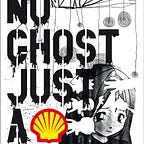Matters Arising 1: Pain, Care, and Empathy
Thought: In order to care it is necessary to feel pain, first of all your own. For, without feeling and knowing your own pain, what resources do have to you imagine and recognize the pain of others?
This seems logical, even obvious, but do we put it into practice? Are we even allowed to put it into practice? Many of us live in a world that prizes professionalism and competance.
These are in themselves valuable, but they are not without a cost. Prioritizing professionalism and competence encourages us to think of externals, reputation, respectability, effectiveness, particularly economic, and not making mistakes, maybe to the point where we do not allow ourselves to make mistakes or admit them. What do we do to ourselves when we create a world where failure is not an option? Fewer risks and less creativity, for sure, but it might also mean that we think of ourselves from the outside, only in terms of reputation, and are less caring for ourselves and others.
If so, we cut ourselves off from our interior world so that we can wear the mask of professionalism — we show up only for fear of “letting the side down”. In such a world, our feelings get in the way of our survival (financial, social, and, of course, professional). If this true for ourselves, how little would we recognize the feelings and pain of others? One does not have to a horrible person to do this. A corporate executive or politician might say that inequality is part of the human condition, and keep good company. After all, it was said “you will have the poor with you always,” but that does not mean inequality and poverty are desirable or that we cannot ameliorate the situation. It is certainly true that there will always be pain in the world, but that inevitability cannot mean we deny its place in our lives, recognize it others the name of indifference and the chilliness of professional effectiveness.
The life of the workplace is only one aspect of our lives together, but a principle of recognizing that care is necessary but also limited in what it can do can be found in other areas. Our education systems value grades over individual curiosity, student contributions, and personal achievement. Limiting myself to the world as it is now, the requirements of evidence may mean that rape convictions are rare, but that does not entail the humilation of the victim by not taking the experience seriously. Rather, it means recognizing the reality of the pain and then squarely facing the constraints of the law as it is now. The same may apply to racism. After all, no one seriously believes that centuries of habits of thinking, social, cultural, institutional and legal norms can be changed in a flash, but the size of that task does not mean that we pretend that everything was righted in the 1960s and deny the reality of people who speak out about it. Reinvention is not only possible, but necessary.
Of course, as we have seen over the past few years there is a great deal of sexual harassment and racism in our work culture and business practices, the very place where in the name of professionalism and competency we are required to cut ourselves off from care for feelings and pain, first of all our own and then others. It is possible this professionalism is frigid heart of whiteness, with its relentless quest for bourgeois repsectability. Even if that is wrong, when middle-class Londoners consume so much cocaine it is found in the fish of the Thames, when poor white Americans are dying from opioids, when pretty much everyone else is drinking themselves stupid, and when presidents tweet as states burn, it is worth asking just what is the price — physical, psychological, spiritual, social, political, environmental, even economic — paid for not caring for ourselves, and is there anyone who can truly afford it?
